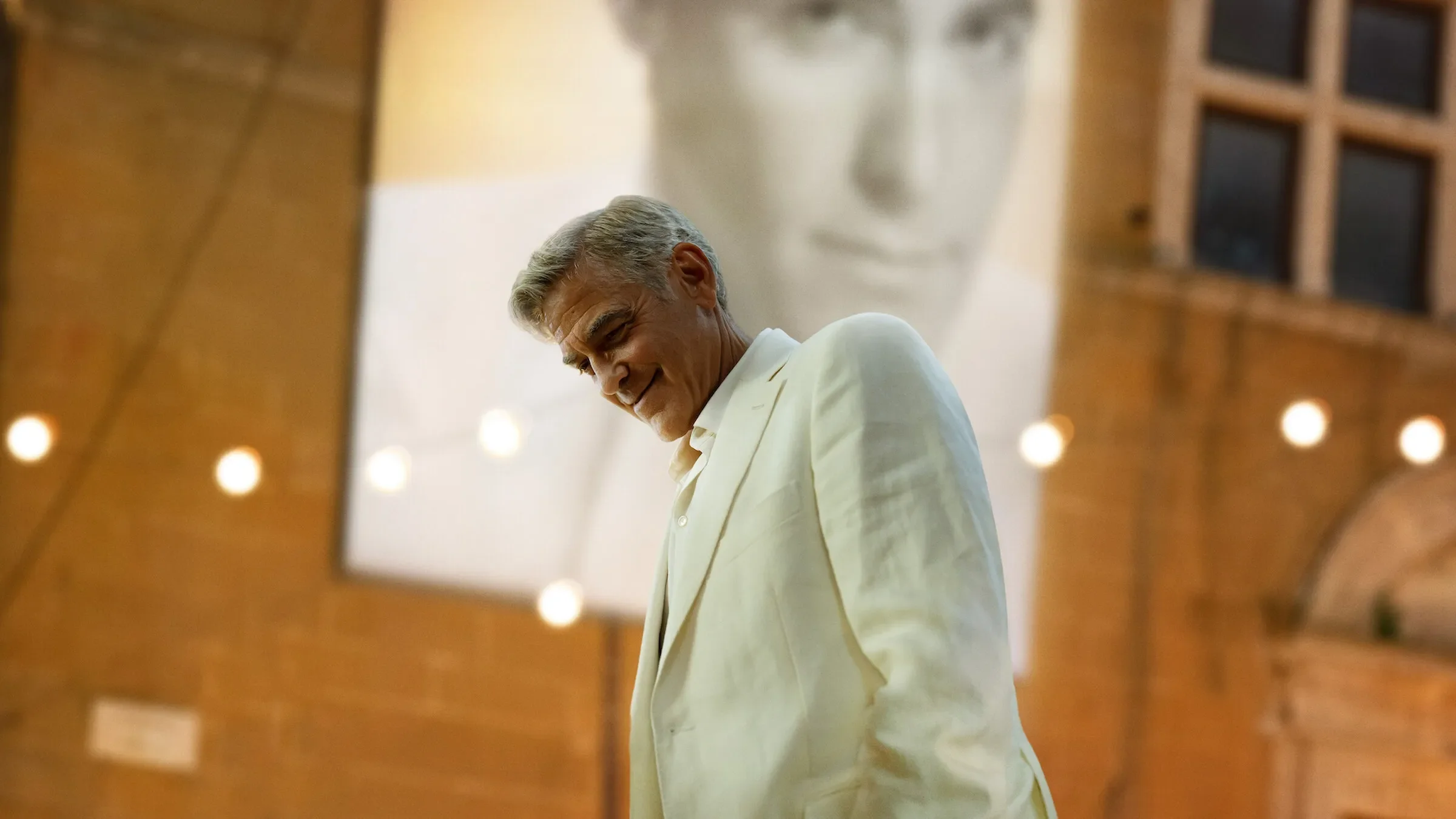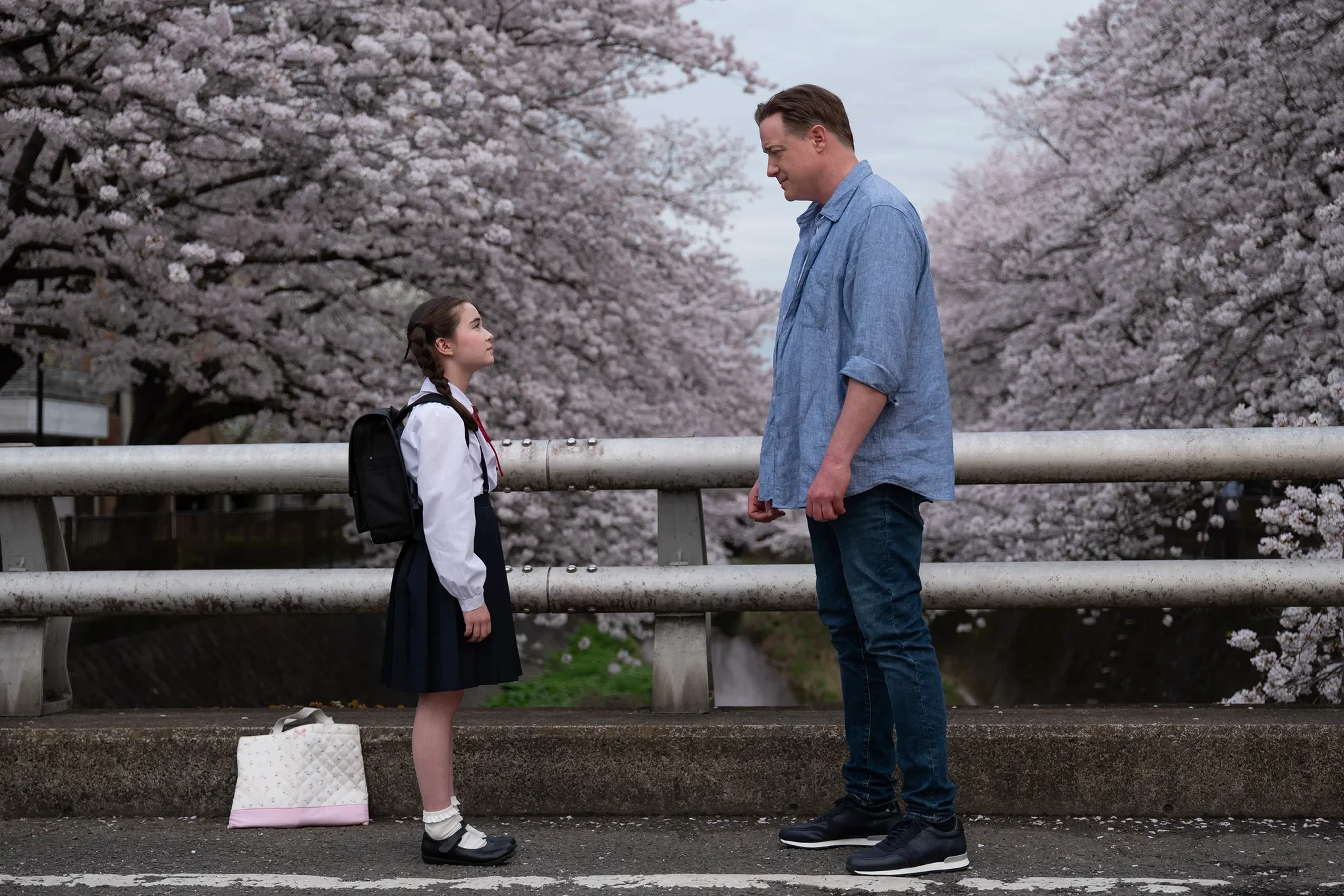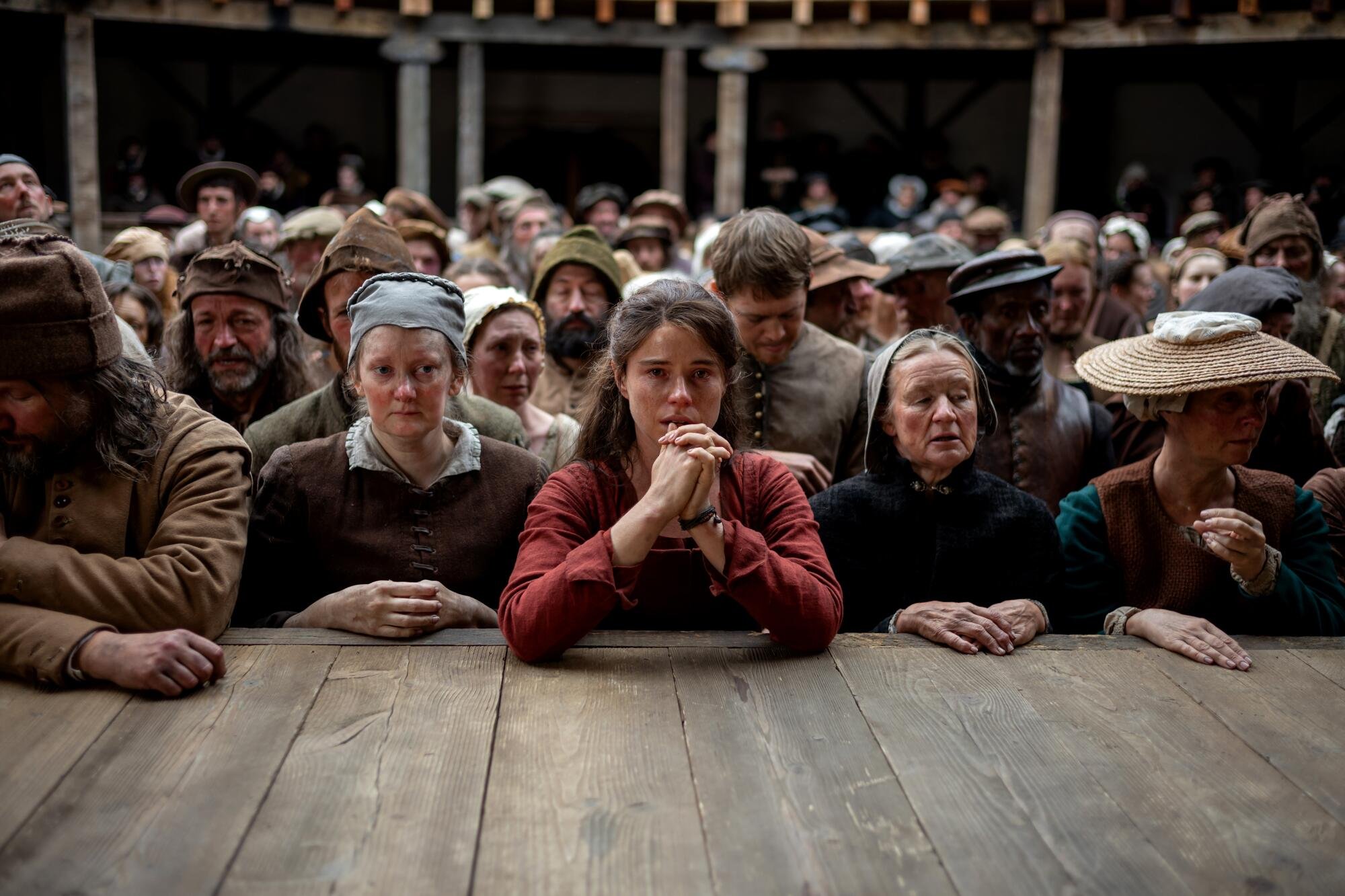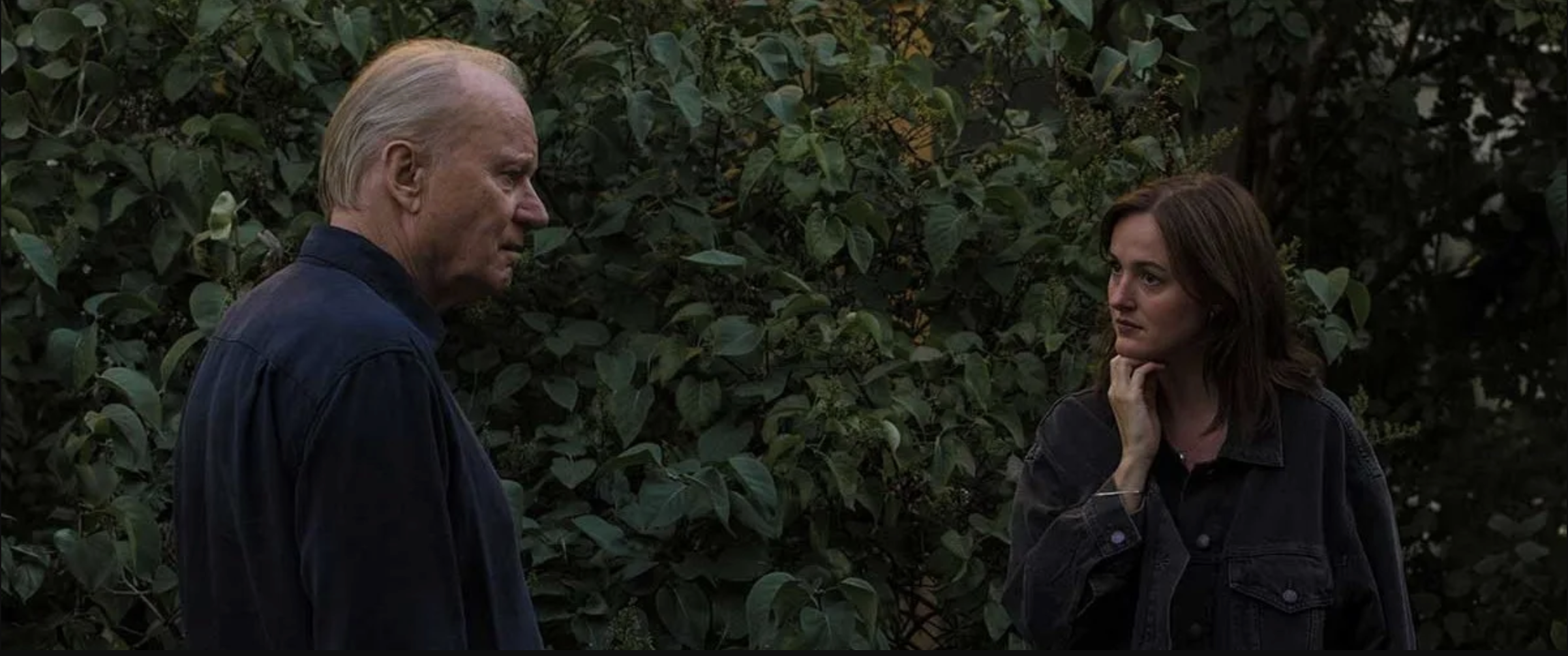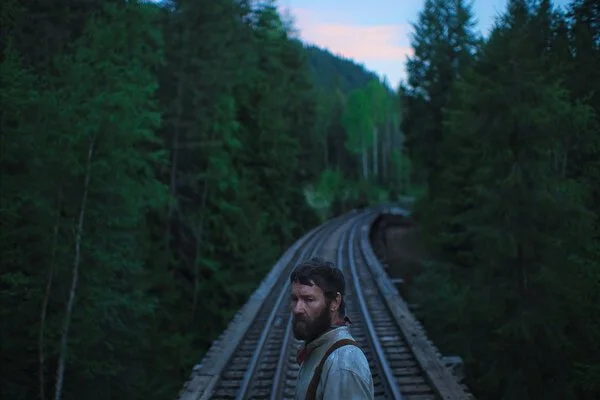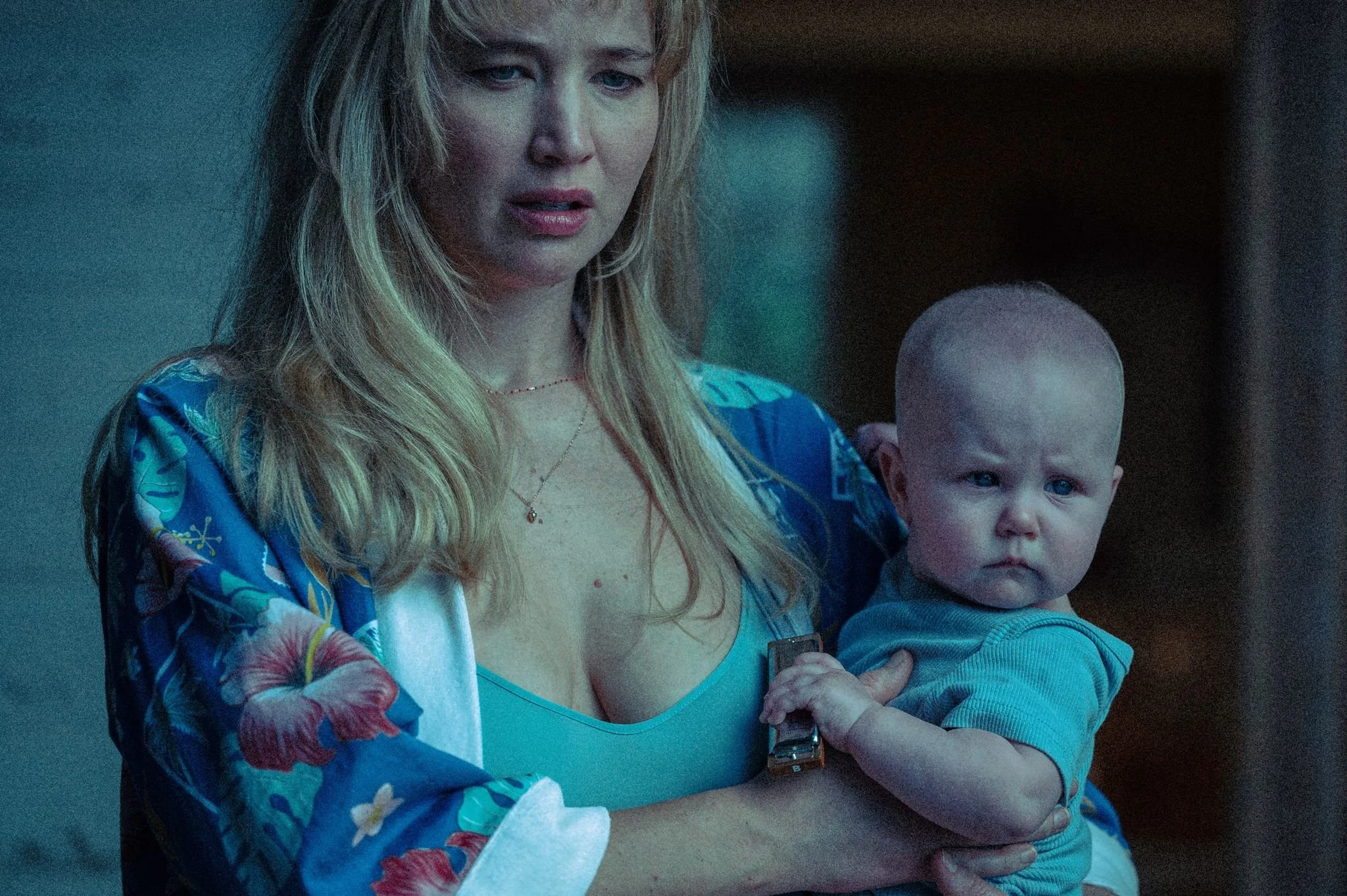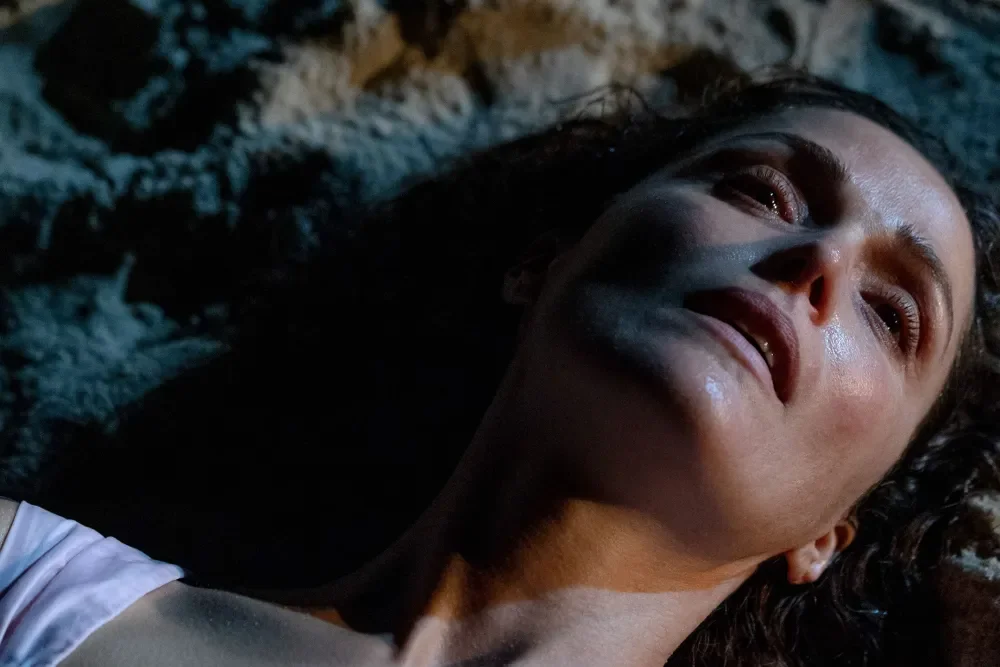JAY KELLY
Directing: B-
Acting: B+
Writing: B-
Cinematography: B
Editing: B
There was a time, thirty-odd years ago, when there was a recognizable element of a “made for TV” movie. Later, twenty-odd years ago, we got a higher level of movie on TV, usually originals made for premium cable channels. Still later yet, maybe ten years ago, we moved into a recognizable original movie made for streaming platforms—largely but not limited to Netflix. There are slight variances in all of these examples, but what they all have in common is a certain tone, a certain level of production value, a certain quality of the writing. All of it was at least one step down, sometimes more, from the level of quality you might expect in a theatrical release.
Enter Jay Kelly, which feels very much like a prototypical “Netflix Original” of the 2020s era. And don’t get me wrong, there are always exceptions—indeed, in their days, there were also exceptional made-for-TV movies and premium-channel originals. But when enough of these things get made, they kind of fall into a recognizable average, and that’s the space Jay Kelly exists in. It’s a decent enough movie, but just not quite good enough to feel like it would have been worth seeing in a theater.
I realize I’m speaking like a person out of time, given the wildly changing movie landscape, the siloed nature of audience interests, and even how many truly terrible movies you can actually still see in theaters. But Jay Kelly is trying to provide the kind of “movie for adults” that used to be moderately successful in cinemas and just don’t exist there anymore. But it also falls short of what the best of those sorts of movies used to provide when they were given a chance to thrive.
And there is an unforeseen downside to the touted tendency of Netflix to give filmmakers total freedom to make whatever they want, to create a “pure vision.” It turns out, sometimes studio notes are actually good, and unchecked indulgence isn’t always all that great. In this case, it’s director and co-writer Noah Baumbach, who previously brought many Oscar nominations to a Netflix Original with Marriage Story (2019), a much better film than Jay Kelly. There was a couple of years there where Netflix was helping shepherd filmmakers to near-masterpieces.
It’s too bad, because Jay Kelly had a lot of potential, starring George Clooney in the title role as a movie star in the twilight years of his career, looking back on his life with melancholy, loneliness and regret. His manager, Ron (Adam Sandler), is a long-suffering and thankless friend who Jay rarely sees as anything other than someone he pays. The same goes for his publicist, Liz (Laura Dean), and to a bit of a lesser degree, his hairstylist, Candy (Emily Mortimer, who co-wrote the script with Baumbach). A bunch of other recognizable faces show up: Jim Broadbent as Jay’s longtime professional mentor; Billy Crudup as Jay’s old acting school buddy; Patrick Wilson as another actor managed by Ron; even Greta Gerwig as Ron’s wife—and it’s lovely to see Gerwig in front of the camera again, even if relatively briefly.
The trouble is, the script for Jay Kelly is often unnecessarily obvious, garnished with some clunky exposition, as when Ron and Liz talk about the night 19 years ago when she left him at the Eiffel Tower. They tell each other things that fill us in on the story but would never be the level of detail people would actually say to each other when recalling a shared memory.
I feel like I understand what Jay Kelly is going for, about a man both running from himself and afraid to actually be himself (it’s mentioned more than once how hard that is to do). It just misses the mark a bit. The performances are decent across the board, and Clooney is well cast in this role, even if it’s a very odd choice for a tribute event for Jay to feature retrospective clips from his film career that are all clips from George Clooney’s actual film career. What exactly are we doing here? One might assume this is a meta commentary on Clooney’s own life—right down to the first-consonant sounds of both first and last names—except for how clearly and fully fictionalized Jay Kelly and his life are. Not enough of Jay Kelly makes us think about the real-life George Clooney until this moment, and this retrospective of his career makes us think only about George Clooney and not enough about Jay.
Baumbach also makes a consistent choice regarding Jay’s reminiscences, where he will walk through a doorway into another room that turns out to be one of his memories. I always found these moments awkward and not especially well executed. In one scene, he calls one of his two grown daughters on the phone, and suddenly the daughter is walking with him through the woods—an unnecessarily foggy woods, mind you—and speaking to him face to face, even though we are to understand they are actually on the phone. I just felt Jay Kelly would have worked better without all these odd transitional flourishes.
It took a bit of time, but Jay Kelly did ultimately hold my interest; there are too many really good actors in it for it not to. That said, I have long far preferred Adam Sandler as a dramatic actor to his mostly-awful comedies, but while he is decent in Jay Kelly, his performance here falls far short of the incredibly dynamic screen presence he had in films like Punch-Drunk Love (2002) or Uncut Gems (2019).
Again, this all comes back to the unchecked freedom now characteristic of, particularly Netflix Original films. It increasingly brings with it a kind of looseness that does not necessarily serve the movie. Jay Kelly has a very compelling premise and pretty solid performances, but it also would have benefitted from polishing, maybe even a bit of trimming. It has a satisfying trajectory of story beats, but this is not a movie that needed to be 132 minutes long. It features no dramatic catharsis that makes it feel worth the time investment.
Or: maybe it’s worth having on at home, and that’s exactly the point. My counterpoint, I suppose, is that this approach has done nothing over time but lower our standards. It was fine, I guess. Okay let’s watch another blandly effective entertainment that’s Up Next!
Jay Kelly, George Clooney, then and now: an actor reflects.
Overall: B

